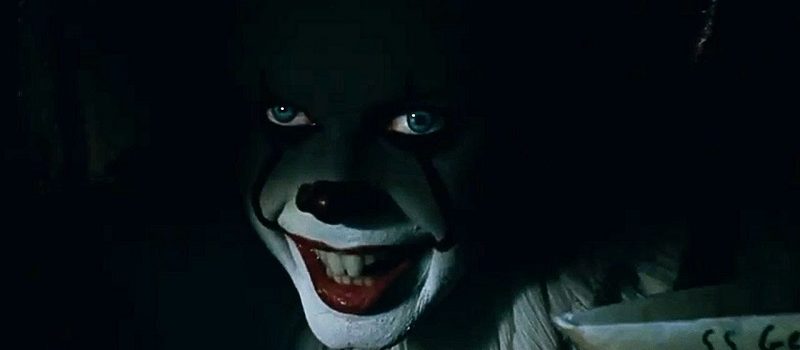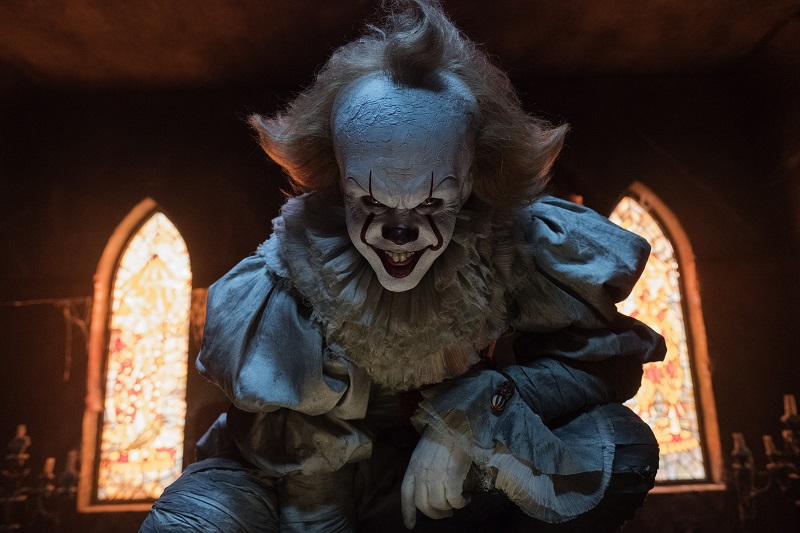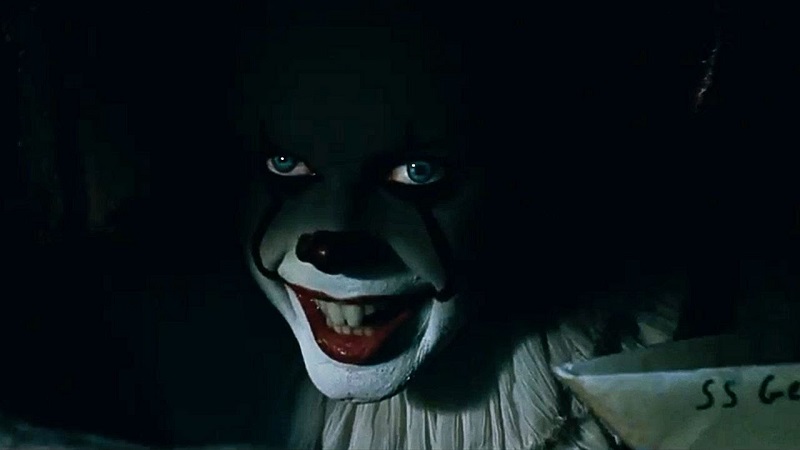Bill Skarsgård comes from a Swedish acting royal family. His brother, Alexander and father Stellan Skarsgård, have mastered the thespian art form for years. One can see the family business is thriving from the performance turned in by Alexander’s younger brother Bill as the iconic Stephen King villain Pennywise in It.
We caught up with Skarsgård recently at the Beverly Hilton for a chat where he took us inside the madness that is the legendary villain and gave us insight into how one gets inside the head of a demonic clown that emerges from the air every 27 years to terrorize children.
Q: It has an iconic book. There’s the wildly popular miniseries starring Tim Curry as Pennywise. What is your history with the material before diving into this incarnation?
Bill Skarsgård: Going in to this, I saw the miniseries and I read the novel. I just saw the miniseries and then stayed away from it as much as possible, because I knew that we weren’t doing that again. But the novel was my bible, my source material that I read through it and I marked all the pages and I took notes. And I would go back to it throughout the whole shoot. It’s a 1,200 page book and there’s so much in there, especially with the character Pennywise. There’s so many little bread crumbs. There’s also a purposefully mysterious aspect of what the character is, and there’s a lot of room for interpretation. I think me and Andy (Muschietti, director) had similar ideas of what the character was. Then reading it reaffirmed our ideas and the psychology behind it.
Q: Is it safe to say that one could compare your take on Pennywise to a theater actor tackling Hamlet?
Bill Skarsgård: That would be a good way of putting it. You have different plays, different actor doing different characters every other year. For all of us, as filmmakers going into this, we didn’t want to do the same thing that’s already been done. [I’m] a different person and actor than Tim Curry. Tim Curry is Tim Curry and nobody will do Tim Curry as good as Tim Curry. But, nobody will do Bill Skarsgård as good as me.
Q: What do you think is the psychology of Pennywise?
Bill Skarsgård: I have a slight resistance in telling it because it’s a weird thing to reveal it. It’s ours.
Q: How was your interpretation of Pennywise, compared to that of what Andy thought of with his conceptualizing as you got started?
Bill Skarsgard: Having Andy’s trust in me, we were like never in disagreement with the psychology behind him.
Q: How soon after getting the part did you have to start? How much were you able to prepare?
Bill Skarsgard: After I booked the job, we had 10 days before we started shooting! I was like, “Okay, I need to go through this 1,200 page book.” But, I also had that whole stage before I tried the make-up on. It was me intellectualizing the character. How does he work? Why does he work? Why is he even around, does he even exist apart from the imagination of kids? This whole thing kind of, almost existential thing, I think it’s very true to the book if you read it. Then once you get the make-up on it’s like, now I need to embody this thing, the third and final stage of the process.
Q: What was your first reaction when you saw yourself in full makeup and hair?
Bill Skarsgård: The first time we had a make-up test, it took about five hours to get the prosthetics and everything on, and I saw every stage. I would just stare at myself in the mirror for those five hours and try and look at faces. Then we had screen tests and Andy, we would figure out, like playing around with different faces.
Don’t miss our It review!
Q: How long was the makeup process once the production got going?
Bill Skarsgård: I think we got it down to two-and-a-half hours, which is not bad.
Q: I read you were asked to keep your distance from the child actors. How did that inform what we see onscreen? When was the first time any of them saw you?
Bill Skarsgård: Yeah, me coming out of the fridge scene (spooking Eddie Kaspbrak). There was one of those things, with kids you don’t know. You don’t know until you know. The kids were all such great little actors. Even when we were doing the scene, the first scene, the first take of it, the first day on set essentially. The first time Jack (XX) sees me, who plays Eddie, and he goes, “Oh, whoa, whoa, whoa.” I’m like, ” I’m Bill, okay let’s do this.” And, I was so in my own fucking head because we were shooting the scene. I would just walk around in circles just getting into this kind of — essence of what the character was and then I’d come out of the fridge. We’d block it slightly, just slightly but the blocking was very much just like me walking through it, we wanted to see so much energy expend when you do the character. I go out and I do it, action, and it’s like a whole thing is I’m mocking his asthma and his breathing and it’s like, “Aahhh.” He’s like, “I’m fine.” I’m gagging and I’m drooling all over him, it’s a really bad scene and it’s like, “Cut” and I’m like, “Are you okay Jack, are you okay?” He’s like, “Yeah, man I’m fucking awesome. I love what you’re doing. Love what you’re doing? It freaked him out, but he used it — which is the key element of being an actor. That’s just a testament to how good these actors were. They weren’t kids that you needed to manipulate in to have a good performance. They knew intuitively how to enhance their performance in the scene.



